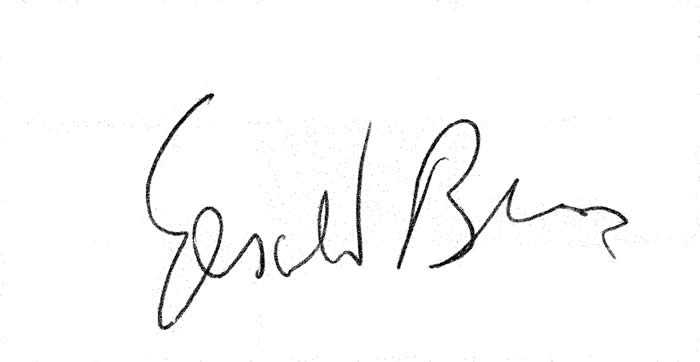
Philosophy of Science
Elizabeth Church looked at her arm, thinking she would order it to rise
and it would lift and that would prove something. It didn't rise, just
rested on the table, two shades lighter than its veneer. Why
didn't it rise? She knew how to lift her arm, did it
all the time without thinking. I'll shift in my chair, she
thought, being restless, but didn't. The greenish low-bellied flask
she used as a vase, yesterday's flowers in it, was just beyond
her hand which was shapely and strong, a bit squarish
in the palm. She could see, or thought she could, a reflection
off it toward the bottom of the vase. I'll move a finger,
she said. Nothing. "I'll say aloud I'll move my finger."
No sound came. The flower in the vase, yesterday's multiple-
headed hyacinth, drooped in a sense but it was not an action.
Elizabeth looked at the sun on her shapely brown hand.
There were dust-motes, always were in that apartment
so near the freeway. There were motes, she thought,
but immobile, like gold flecks in a formica table top. How
could they, why--- At least, she thought, her mouth and throat
feeling as if she might be about to say something, I can direct
my attention. That flower. It is purple, chose to be purple
as I choose to be Elizabeth. It was purple, though faded,
and looked a bit gray suspended over the vase's turned-out lip,
its versicles or whatever they were, sap-supplying part,
patently failing. She noticed one of its buds was falling,
or had been falling, a third of an inch below the parent bloom
as one sees, sometimes, a snippet of rose leaf dangle from some
minute spider's filament. This hyacinthine fragment did not twist
as those do, but then there was no wind. No sound of any kind.
She began to be troubled. "I shall frown," she thought, and
felt she felt a slight congestion brow-ward, her eyes calm,
no bunching of little muscles to indicate alarm, perturbation.
"I must not be afraid," she thought, thinking it. This hyacinth
is in the same boat, and it is not upset. I must be, I infer
I am, calm or calmer than, knowing myself, I would expect.
She tried to think the difference between thinking a thing and
imagining herself as saying it, imagining itself as said by her,
being, that's to say, uttered, but only in the mind. Tacit speech,
even babble, would be activity, a stain she thought would spread
across stasis, or could easily spread, be imagined as spreading. She
tried to imagine saying "I'll lift my arm, my hand." Her lovely
hand lay there, as if obedient. Absurd, she thought. I remember thinking
what I thought before. Time does not stand still. I persist --
like a Dali watch. Can it be, she wondered, the day's so warm
that time is melting? Wondered it again, recognized this as
repetition, a little triumph. Her world contained that grit. Her arm
lifted. Ah, she thought, as the fragment of the flower struck
the tabletop inaudibly, nodded, spoke. "My will is operant.”
Copyright Gerald Burns 1995-1997